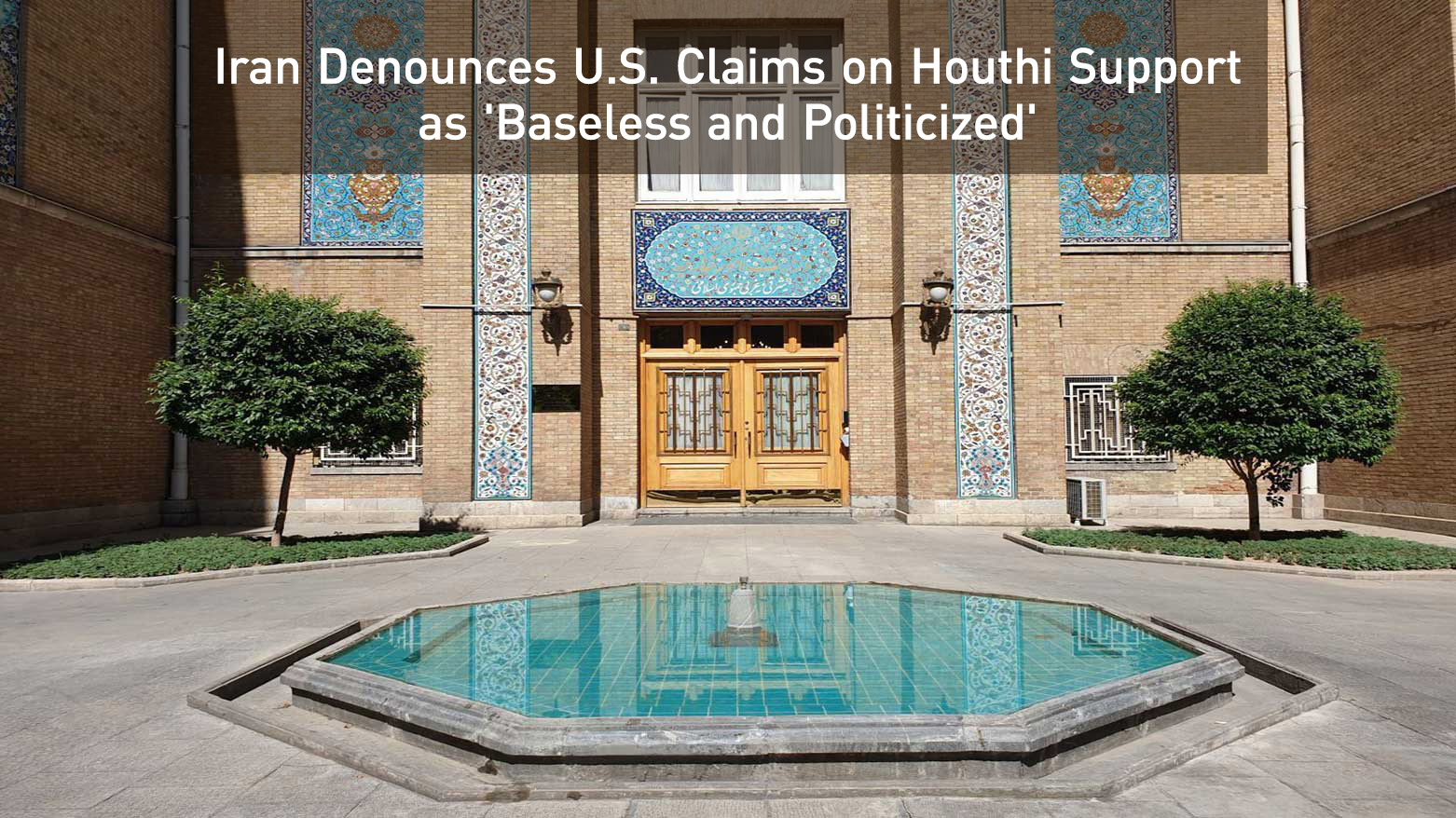Iran Denounces U.S. Claims on Houthi Support as 'Baseless and Politicized'
Iran dismissed these allegations, asserting that the Houthi actions are independent and stem from "human and Islamic solidarity with the Palestinian people."

ERBIL (Kurdistan24) — The Islamic Republic of Iran has firmly rejected repeated accusations of involvement in Houthi attacks on regional targets, labeling them as “baseless” and part of a broader effort to shift focus away from Israel’s ongoing war in Gaza. In a strongly worded statement released by Iran's Ministry of Foreign Affairs, Tehran condemned U.S. military actions in Yemen and warned of the broader consequences for regional security.
The statement came in response to growing international claims that Iran is directing or materially supporting the Houthis' escalating military campaign, including missile and drone attacks against Israel and commercial shipping in the Red Sea. Iran dismissed these allegations, asserting that the Houthi actions are independent and stem from "human and Islamic solidarity with the Palestinian people."
“The courageous actions of the Yemeni people in self-defense and in solidarity with the Palestinian people cannot be attributed to Iran,” the statement read. “Such claims are an affront to that proud and oppressed nation.”
Tehran accused the United States of engaging in direct conflict with the Yemeni people under the guise of protecting Israel, stating that U.S. airstrikes on Yemeni cities amount to war crimes due to their alleged targeting of civilian infrastructure and non-military sites.
Iran further claimed that the accusations serve as a smokescreen to cover “the Zionist regime’s atrocities in occupied Palestine,” and are being used to “conceal strategic failures” while justifying continued Western military engagement in the region.
Reaffirming its support for international law, Iran’s Foreign Ministry labeled U.S. airstrikes on Yemen as “flagrant violations” of the UN Charter. It warned that continued aggression would have grave consequences for the security and stability of West Asia and the Red Sea region.
The statement concluded with a direct rebuke of "recent threats from both Washington and Tel Aviv", stressing Iran’s determination to defend its sovereignty and national interests. “The Islamic Republic of Iran holds both the United States and the Zionist regime accountable for the consequences and repercussions of such conduct.”
This declaration underscores the deepening divide between Tehran and Washington amid mounting instability across the Middle East, much of it driven by the fallout of the Israel-Hamas war that began on October 7, 2023, when Hamas launched a brutal cross-border assault into southern Israel, killing civilians and taking hostages. In the months since, Iran-backed militant groups—including Hezbollah in Lebanon and the Houthis in Yemen—have escalated their activities, launching attacks on Israel and threatening critical international shipping routes, particularly in the Red Sea.
Statement by the Ministry of Foreign Affairs on the Allegations Against the Islamic Republic of Iran Regarding #Yemen
— Foreign Ministry, Islamic Republic of Iran 🇮🇷 (@IRIMFA_EN) May 5, 2025
The Ministry of Foreign Affairs of the Islamic Republic of Iran regards the repeated baseless accusations attributing the courageous actions of the Yemeni people… pic.twitter.com/IHTSOKCMEH
The United States, in coordination with its allies, has taken firm deterrent measures to protect regional stability, safeguard commercial navigation, and prevent the conflict from spreading. U.S. officials have repeatedly emphasized that military responses in Yemen are aimed at degrading the capabilities of the Houthis, whose missile and drone attacks pose a growing threat not only to Israel but to global maritime trade.
Washington has maintained that it does not seek a broader war but will act decisively to protect its forces, allies, and international norms. The escalation reflects a broader strategic contest, with Iran increasingly accused of using proxy forces to destabilize the region and expand its influence, often at the expense of civilian populations and regional peace.